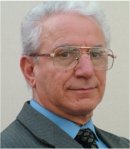|
Plenary
Lecture
Integration of High-Power Light Emitting Diodes (LED's)
and High-Resolution Colour Camera into Endoscopes for
Medical Applications

Professor Noel Y. A. Shammas
Faculty of Computing, Engineering and Advanced
Technology
Staffordshire University
UK
E-mail:
N.Y.A.Shammas@staffs.ac.uk
Abstract: The increasing number of minimally
invasive procedures is likely to increase the demand for
long lasting, easy to use, efficient and reliable
endoscopes. In addition to this there is an urgent need
for a portable, lightweight endoscope using LED
technology to be used in the field in disaster and war
zones, and for training medical students. A compact and
low-cost endoscope would be highly sought after by
surgeons all over the world. It is the desired outcome
of this work to develop a low-cost, portable system to
fulfil these needs. Not only will a low-cost instrument
find usage in the medical field it can also be applied
to many others including engineering, the built
environment, aerospace and many others when access for
visual inspection is difficult. The portability of the
device and its lack of reliance on a connection to a
mains power source means that it can be applied
virtually anywhere in the field thus making
minimally-invasive surgery possible in otherwise
impossible regions. This should lead to speedier
procedures which are not only good for the patient but
also have better economic viability.
Because it is proposed to use LEDís in the design to
replace bulky, inefficient and expensive light sources
which have colour-mixing features, the endoscope will
also have enhanced capability as a light source. Added
to this, endoscope will also incorporate a miniature
camera, it then becomes possible to transmit images over
a wireless network (local or global) for assisted remote
diagnosis.
Brief Biography of the Speaker:
Noel Shammas is currently a Professor of
Microelectronics and Solid-State Semiconductor Devices
in the faculty of Computing, Engineering and Advanced
Technology, Staffordshire University. He received the
MSc and PhD degrees from Salford University in 1972 and
1975 respectively. Since then he lectured and researched
at different universities and industry (GEC). Research
work is primarily focused on Semiconductor Devices which
includes mainly Power diodes, Light Emitting Diodes
(LEDís), Insulated Gate Bipolar Transistors, Thyristors,
and Energy Harvesting Devices. Other related areas of
research work includes Power Module Packaging
technologies (Both Conventional Press-pack and Smart
pack designs) and Series/Parallel operation of high
power semiconductor devices and their interaction with
external circuits.
Professor Shammas has extensive experience in both
experimental and theoretical research work and is
recognised internationally for his significant
contribution to research in the field of Semiconductor
Devices. He has published over 120 journal and
conference research papers as well as several invited
Keynote and Plenary Lectures, and has held several
research grants from funding councils, Advantage West
Midland (AWM), as well as from industry. He is a regular
reviewer for many journals (including IET Proceeding
Electronic devices and systems, IEEE Transactions on
power electronics, and Microelectronic Reliability) and
international conferences (including the European Power
Electronic conference - EPE, Microelectronic conference
- MIEL, Universities Power Engineering Conference-UPEC,
International Symposium Power Semiconductors-ISPS,
etcÖ). He is a member of scientific committee for many
international conferences (including MIEL, EPE, WCE,
WSEAS, and Microtherm) and a steering committee member
for EPE, UPEC, and ISPS international conferences. He is
also a book reviewer for Prentice Hall International and
McGraw Hill.
|
